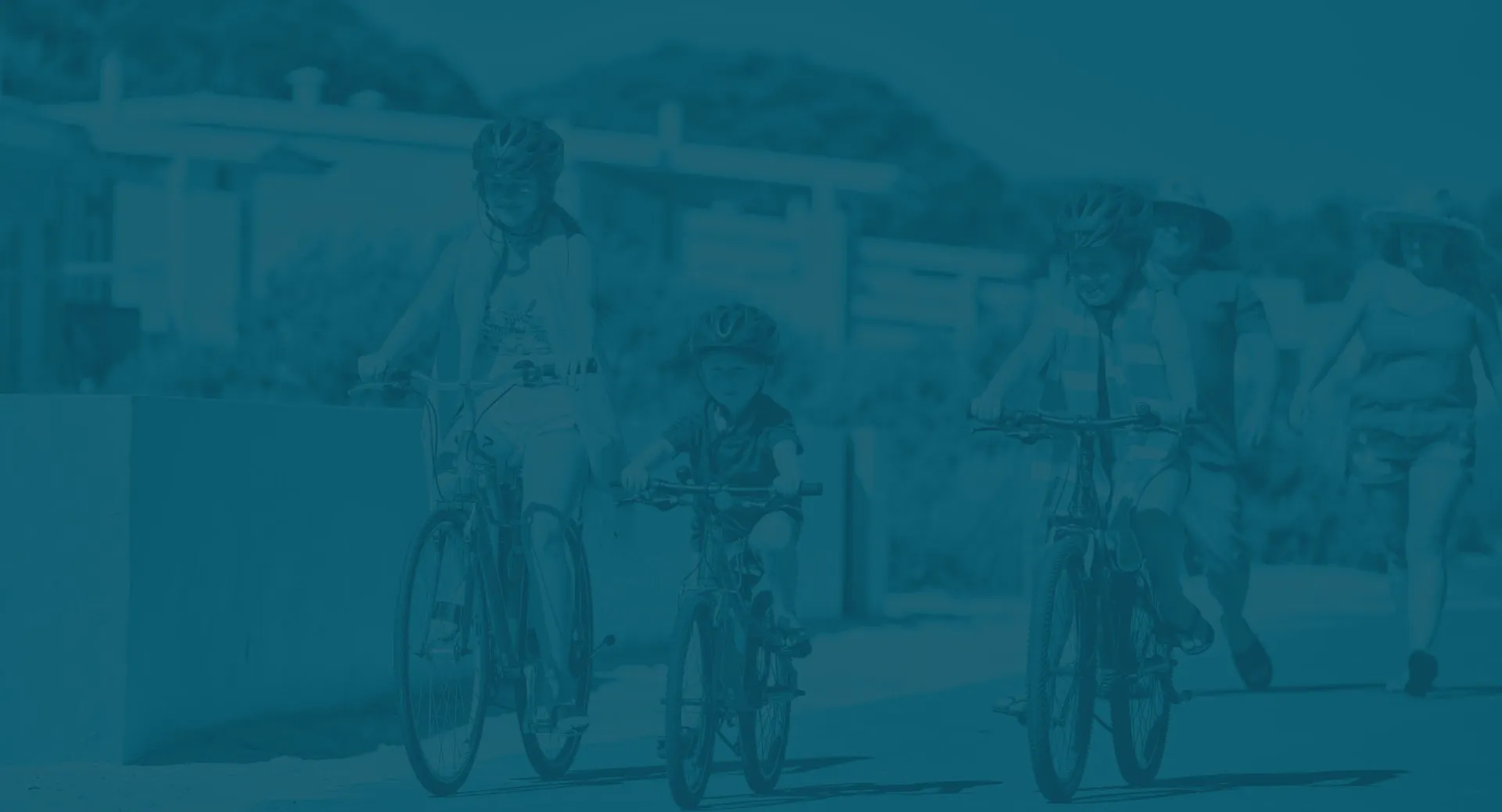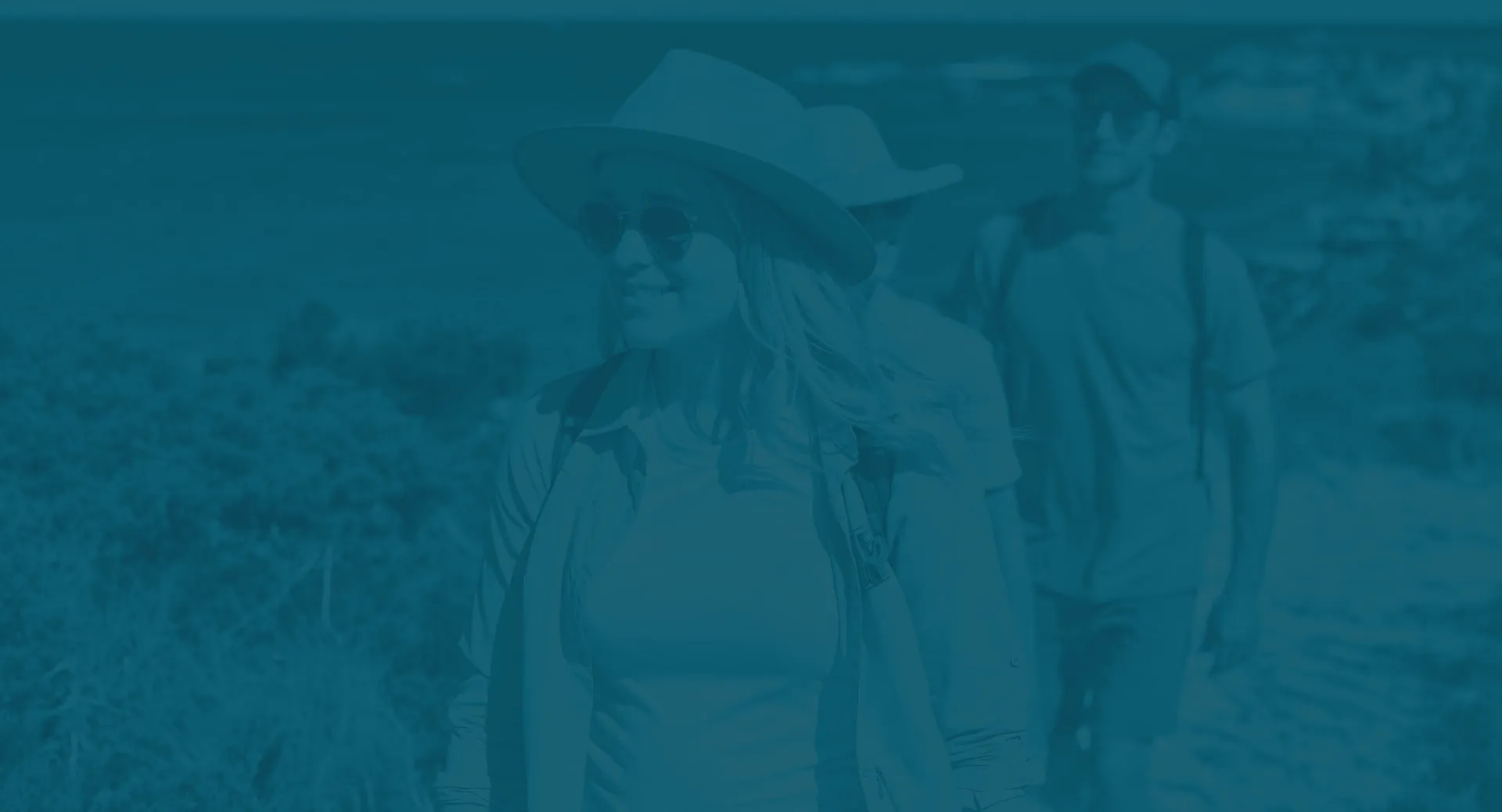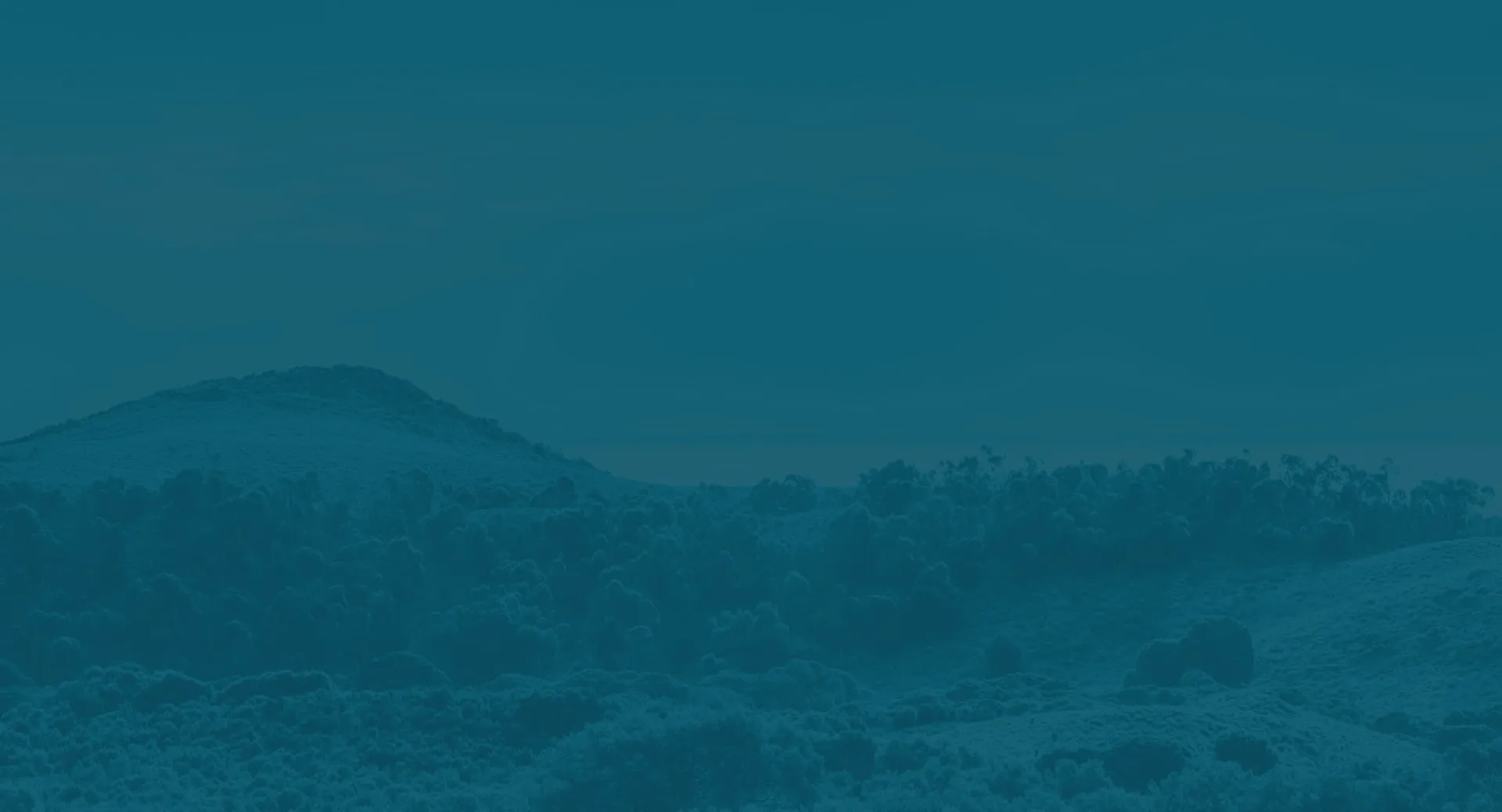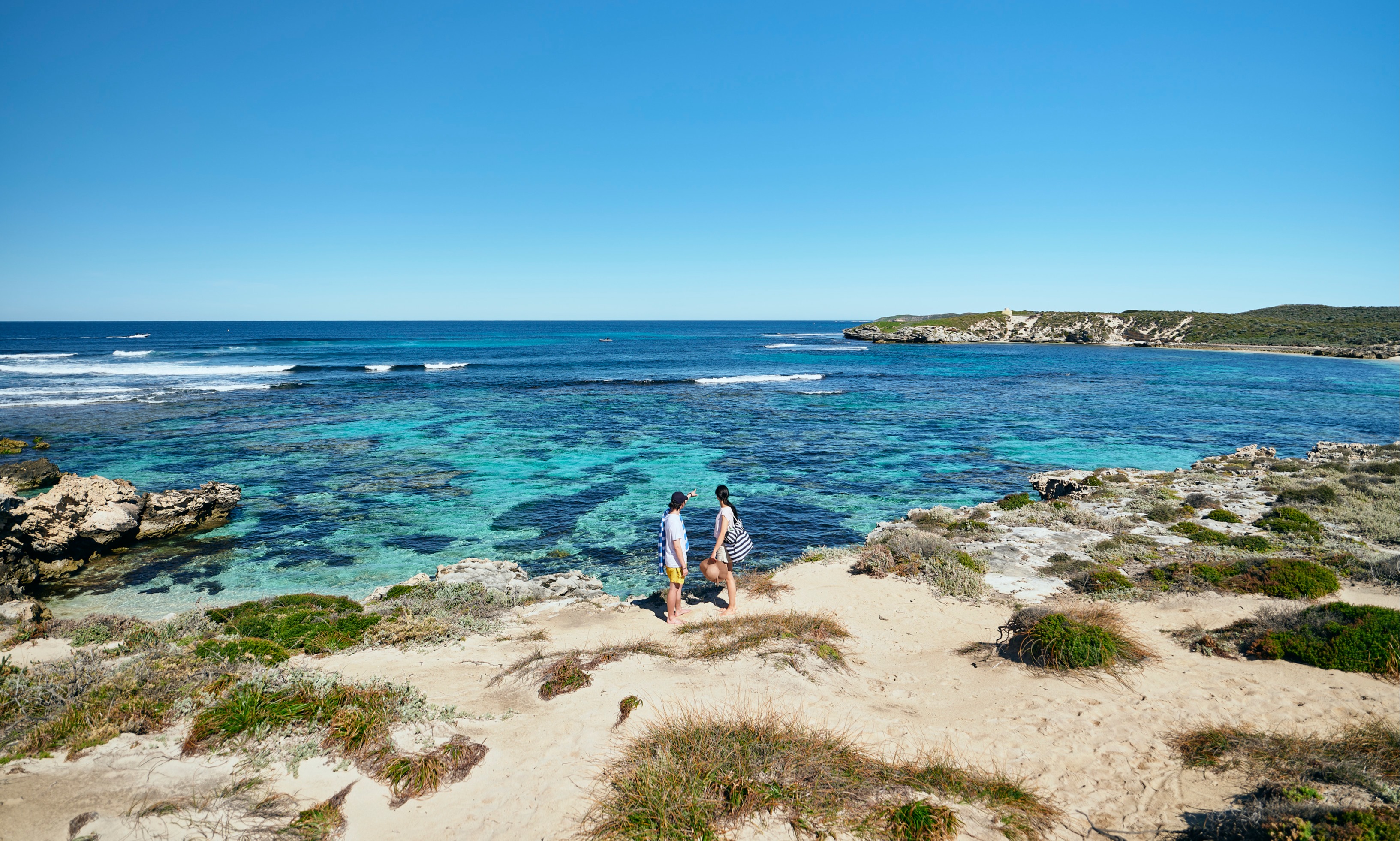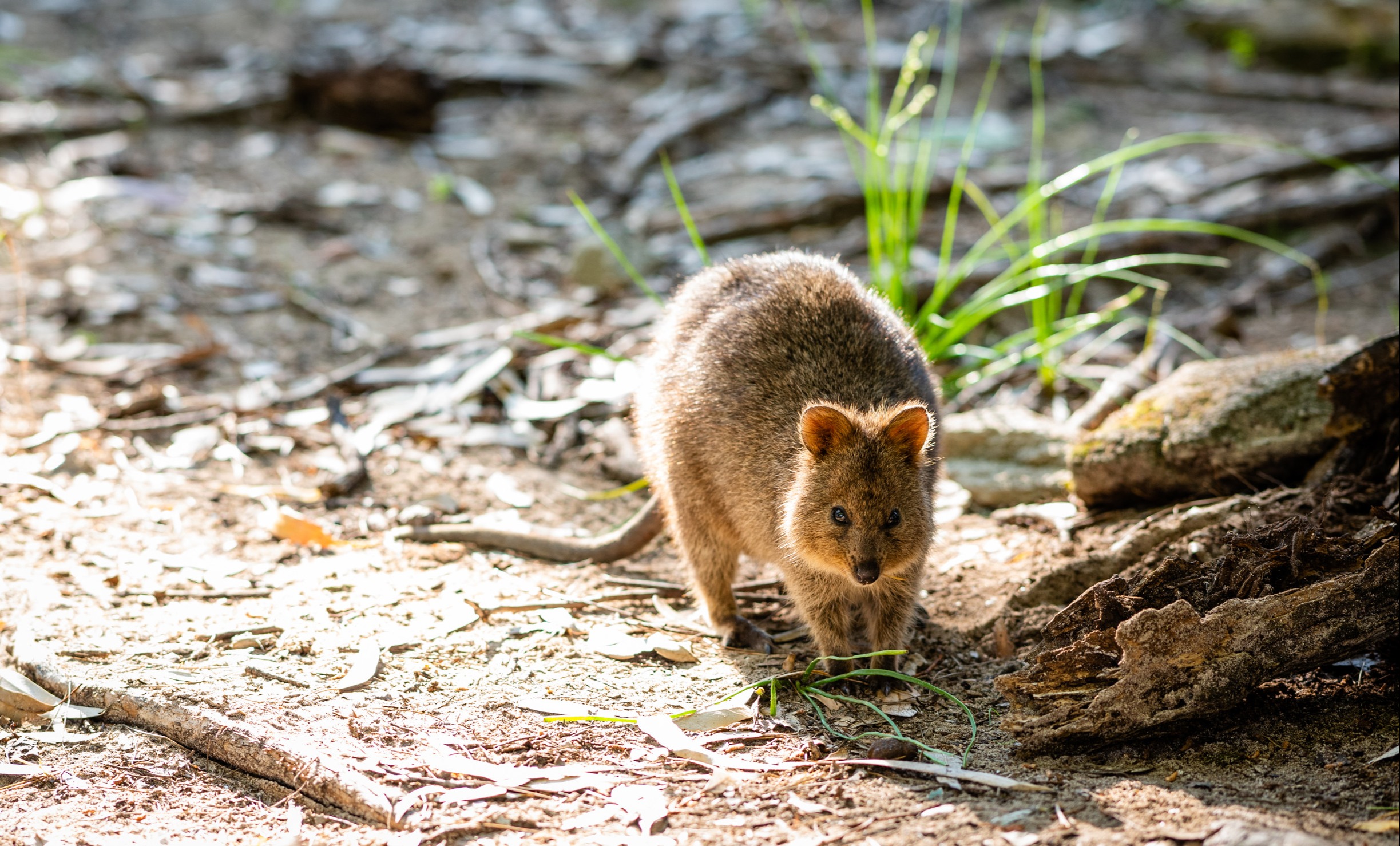For Helpful Advice
The Visitor Centre can help you with important information you should know about the island. Drop in for personalised advice, maps and assistance with booking tours and experiences.
Staying on the island
Minors should be supervised while on Rottnest Island and are not permitted to stay overnight if unaccompanied by a responsible adult. Unaccompanied minors may be issued with caution notes or infringements for non-compliance with the Rottnest Island Regulations 1988 or their accommodation booking conditions. This will result in the cancellation of their accommodation booking, and they will be made to return to the mainland on the next available ferry. Fees may apply for any cancellation of accommodation bookings as a result and refunds may not be given. Refer to your accommodation booking conditions for further details.
Camping on the island is only permitted in designated campsites in the settlement. Sites can be booked through Stay Rottnest Campground.
All personal property must be taken each time you leave the island. Any personal property left in the Class A Reserve will be treated as abandoned property and disposed of by the Rottnest Island Authority accordingly.
For the enjoyment of all visitors, guests are asked to be considerate of others and keep noise to a minimum. This is especially important after 11 pm. This includes music and generator noise. Guests wanting to quietly enjoy alcohol are welcome to do so, however as is the case throughout Western Australia, street drinking is not permitted. Infringements and evictions from the island are applicable.
Nature and wildlife safety
Please avoid walking on any reef as this can damage the fragile environment and the marine species that inhabit these areas.
Sandboards or similar devices used to slide down dunes or sandy areas are prohibited and penalties apply. Dune blowout is an ever-present threat on Rottnest Island.
Swimming with the long-nosed fur seals at Cathedral Rocks is not permitted. Visitors may use the purpose-built viewing platform at Cathedral Rocks to see wildlife from a safe distance.
Keep in mind that blue bottle jellyfish can be present in the water and wash up on the beach, as is common on Perth metropolitan beaches at different times of the year. While not life-threatening, stings can be painful and these creatures shouldn’t be touched – either in the water or if washed ashore.
Be aware there are venomous snakes on Wadjemup / Rottnest Island. The dugite is a timid creature, but may bite if harassed. If bitten, seek immediate medical assistance.
Never feed or touch wildlife on Rottnest Island and always observe from a reasonable distance, for your own personal safety and theirs. In some cases, feeding wildlife can result in the death of the animal and lead to unnatural behaviours.
Anyone who deliberately interferes with (including feeding) wildlife on Rottnest Island can be fined on the spot under the Rottnest Island Regulations 1988 and potentially prosecuted under the Wildlife Conservation Act 1950 with fines up to $10,000. Acts of animal cruelty may result in fines up to $50,000 and 5 years imprisonment under the Animal Welfare Act 2002.
If you see a sick or injured animal or animals being mistreated, please report it immediately to the rangers on (+61 8) 9372 9788.
Health and safety
Automated External Defibrillators (AEDs) are located on the island and at the Nursing Post; however, in a life-threatening emergency, call 000 immediately.
If you witness or experience any incidents of anti-social behaviour during your stay, please report them to the WA Police, Rottnest Island Authority Rangers or the Visitor Centre.
With a rich offering of active pursuits on the island, ensure you wear shoes adequate for hiking and cycling. As weather conditions can change rapidly, be prepared by checking local conditions before your visit and bring suitable clothing.
There is no pharmacy available on Rottnest Island. Visitors are reminded to bring adequate supplies of essential prescription medications.
Non-prescription medicines are available at the General Stores. For injuries, please visit the Nursing Post in Thomson Bay.
The hot and dry conditions in Western Australia mean there is a risk of bushfires on Rottnest Island. As a Class A Reserve, the lighting of fires is prohibited and can be extremely dangerous. Care should be taken at all times and campfires are prohibited on the island. Please help protect our natural environment and follow the fire warnings. Safety information is available from the Department of Fire and Emergency Services (DFES).
The coastal environment of Rottnest Island is extremely fragile. Beware of unstable rock slopes, cliffs and overhangs. Stay clear of limestone cliff edges, caves and overhanging rocks. These areas can be unstable and may collapse. To avoid damage to dune vegetation, please remain on designated tracks when accessing coastal areas. This will help to reduce the risk of dune erosion.
Always carry adequate supplies of water (minimum of two litres per person or three litres in hot weather). Once outside of the main settlement, there is limited access to drinking water. Drinking water refill points can be found within the Thomson Bay settlement and at the Army Jetty, Kingstown Barracks, The Basin, Vlamingh Lookout and Geordie Bay.
Travellers should always wear a wide-brimmed hat, long-sleeved shirt, sunglasses and sunscreen when outdoors. It is also recommended that you drink at least two litres of water each day. Take extra care and seek shade when outdoors in the middle of the day, when the UV radiation is intense.
Helmets must be worn by all visitors riding a bicycle. Electric bicycles and electric rideables (e-rideables) are also permitted on Rottnest Island in accordance with the requirements of the Road Traffic Code 2000. If you wish to bring an electric bicycle or e-rideable to the island, please ensure that it is compliant.
- Always swim under supervision, or with a friend
- Read and obey the signs
- If you are unsure of conditions, don't swim
- Don't swim directly after a meal
- Don't swim under the influence of alcohol or drugs
- Don't run and dive in the water
- Conditions change regularly; check before you enter the water
- If you get into trouble in the water, don't panic - signal for help, float with a rip current or undertow, and wait for assistance
All divers and snorkellers should be aware of high boat traffic around the island. All divers using underwater breathing equipment (SCUBA) must fly or tow the international ‘A’ flag. Visitors in boats should keep at least 50 metres clear of vessels flying this flag, or divers towing the flag. Dive contractors may be working within the moorings areas and dive flag regulations should be observed. For your safety, always log your dives with the metropolitan Sea Rescue groups.
Swimming between the main ferry jetty and the Fuel Jetty is prohibited at all times. Swimming is not permitted from the ‘T’ Jetty or from the end of the main ferry jetty. Boating-prohibited areas have been designated in certain bays around the island to provide areas for swimming. These are identified by either signs or float lines. Please keep vessels clear of these areas. For your safety, swimming near moorings and jetties or designated anchorage areas is not recommended.
Fishing
As part of Rottnest Island Authority’s Marine Conservation Action Plan, five marine sanctuary zones have been established to help conserve the pristine marine environments surrounding the island. Fishing and/or collecting is prohibited in these areas. For more information see Marine Sanctuaries.
Ensure you have the appropriate licence if taking restricted species and note that spear fishing is prohibited within the specified boundaries of the Rottnest Island Marine Reserve. For more information, visit the Department of Fisheries.
Wadjemup / Rottnest Island has a number of fishing line bins located on its jetties. Please use bins to dispose of any fishing line and tackle.
Boating
In the event of a life-threatening boating emergency, please contact the Police on 000 first or Channel 16 on VHF radio.
If your vessel breaks down or requires mechanical assistance, please contact your local Sea Rescue group.
In the case of an oil or fuel spill, please contact the Department of Transport on (+61 8) 9480 9924 or [email protected].
If you need assistance from the rangers at Wadjemup / Rottnest Island, they can be contacted on (+61 8) 9372 9788 or Channel 16, call sign “Rottnest Rangers”.
All the waters within the Rottnest Island Marine Reserve are protected. No liquid waste can be discharged anywhere in these waters, including waste from marine sanitation devices (MSDs). Ensure you store your liquid waste appropriately and discharge to a suitable mainland facility or outside the marine reserve.
If possible, help to reduce carbon emissions and carry your own waste and recycling off the island. All waste placed in bins on the island is picked up by a truck, compacted and shipped by barge off the island. It is then processed in the same manner as mainland waste.
These are located in Thomson Bay on the Fuel Jetty, Hotel Jetty and ‘T’ Jetty on the main ferry jetty, as well as on the Geordie Bay Jetty. All loading zones have a 20-minute limit. Please observe the maximum time limit when loading or unloading passengers or equipment.
There are no designated water ski areas within the Rottnest Island Marine Reserve and a 5 knot speed limit applies in most bays around the island. For further information please contact the Department of Transport.
Rafting of approved vessels up to 6.75 metres on swing moorings is permitted only where a mooring has been certified with “+ 6.75m” rating. Rafting is also permitted when vessels are on anchor. Appropriate admission fees apply.
Island facilities
The lighting of fires is not permitted on Wadjemup / Rottnest Island. For your convenience, barbecues are located in Thomson and Geordie Bays.
As there is limited access to drinking water outside of the Thomson Bay main settlement, ensure you carry sufficient supplies with you. Refill points can be found within the Thomson Bay settlement and at the Army Jetty, Kingstown Barracks, The Basin, Vlamingh Lookout and Geordie Bay. Visitors travelling by boat are recommended to fill their water tanks from the mainland prior to departure. Water is desalinated on the island and restrictions apply.
Unleaded, premium unleaded and diesel fuel is available from the Fuel Jetty in Thomson Bay by electronic self-service 24 hours per day, seven days per week. Mastercard, Visa and EFTPOS is accepted. For operator assistance (during office hours) please call the number displayed on the fuel bowser. Instruction and safety compliance for the operation of the fuel bowsers is displayed onsite. Fuel and gas supplies cannot be transported by bus.
Wadjemup / Rottnest Island is a Class A Reserve and as such, all flora, fauna and landforms are protected. Please help care for the island’s fragile marine and terrestrial environment by observing the following:
What goes in the recycling bins
- Glass bottles and jars (clean and empty)
- Aluminium and steel (clean and empty)
- Plastic containers and bottles (clean and empty)
- Paper (not shredded)
- Cardboard (please flatten)
What goes in waste bins
- Food scraps or other green organic matter
- Coffee cups and take away containers
- Soft plastics
- Medical waste
- Nappies
- Clothing or textiles
Animals on the island
Wadjemup / Rottnest Island is a Class A Reserve and domestic pets (including dogs) are not permitted on the island or in its waters. Persons in contravention of this regulation will be penalised and required to remove the pet immediately, at their own expense.
If there is a genuine medical requirement to bring an animal with you such as a guide, assistance or companion dog this is acceptable, however please contact the rangers prior to arrival on (+61 8) 9372 9788.
Domestic pets are not permitted within the boundaries of the Rottnest Island Marine Reserve. Persons in contravention of this regulation will be penalised and required to remove the pet immediately at their own expense.
